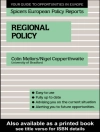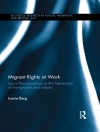When countries discover that they possess large deposits of oil and natural gas, the news is usually welcome. Yet, paradoxically, if they rely on their wealth of natural resources, they often set down a path of poor economic performance and governance challenges. Only a few resource-rich countries have managed to develop their economies fully and provide a better and sustainable standard of living for large segments of their populations. This phenomenon, known as the resource curse, is a core challenge for energy-exporting states. Beyond the Resource Curse focuses on this relationship between natural wealth and economic security, discussing the particular pitfalls and consistent perils facing oil- and gas-exporting states.
The contributors to this volume look beyond the standard fields of research related to the resource curse. They also shed new light on the specific developmental problems of resource-rich exporting states around the globe, including Azerbaijan, Bahrain, Cambodia, East Timor, Iran, Norway, Russia, Trinidad and Tobago, the United Arab Emirates, and Venezuela.
Policy makers and academics think of energy security solely in terms of the interests of energy importers. Beyond the Resource Curse shows that the constant volatility in energy markets creates energy security challenges for exporters as well.
Spis treści
Introduction
—Brenda Shaffer
PART I. ECONOMICS AND INFRASTRUCTURES OF ENERGY EXPORTERS
1. The Natural Resource Curse: A Survey
—Jeffrey Frankel
2. Sometimes the Grass Is Indeed Greener: The Successful Use of Energy Revenues
—Patrick Clawson
3. Is There a Policy Learning Curve? Trinidad and Tobago and the 2004- 8 Hydrocarbon Boom
—Richard M. Auty
4. The Illusion of Unlimited Supply: Iran and Energy Subsidies
—Ahmad Mojtahed
5. Challenges Facing Central Banks in Oil- Exporting Countries: The Case of Azerbaijan
—Elkin Nurmammadov
6. Power to the Producers: The Challenges of Electricity Provision in Major Energy-Exporting States
—Theresa Sabonis-Helf
PART II. ENERGY EXPORTS, SOCIETY, AND POLITICS
7. The Impact of Energy Resources on Nation- and State- Building: The Contrasting Cases of Azerbaijan and Georgia
—Murad Ismayilov
8. Education Reform in Energy- Exporting States: The Post- Soviet Experience in Comparative Perspective
—Regine A. Spector
9. Is Norway Really Norway?
—Ole Andreas Engen, Oluf Langhelle, and Reidar Bratvold
PART III. ENERGY EXPORTERS IN THE INTERNATIONAL POLITICAL SYSTEM
10. Energy Exporters and the International Energy Agency
—Richard Jones
11. Resource Nationalism and Oil Development: Profit or Peril?
—Amy M. Jaffe
12. Natural Resources, Domestic Instability, and International Conflicts
—Elnur Soltanov
13. Petroleum, Governance, and Fragility: The Micro-Politics of Petroleum in Postconflict States
—Naazneen H. Barma
Conclusion: Constant Perils, Policy Responses, and Lessons to Be Learned
—Taleh Ziyadov
Notes
Contributors
Index
O autorze
Brenda Shaffer is Senior Lecturer in the School of Political Science at the University of Haifa. She is the author of many books, including Energy Politics, also available from the University of Pennsylvania Press. Taleh Ziyadov is Research Fellow at the Azerbaijan Diplomatic Academy in Baku, Azerbaijan.












